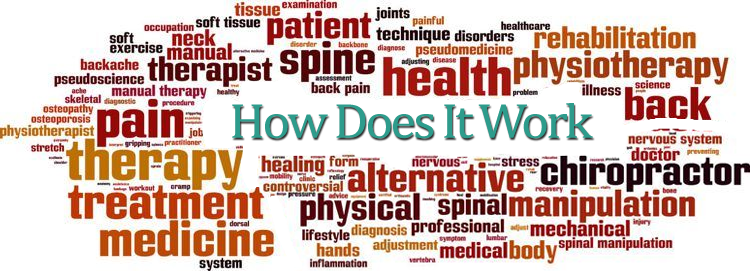
How Does Chiropratic Work?
If you went to Chiropractic College 20 years ago you were told that spinal misalignments put pressure on the spinal nerves and spinal cord. While this is a plausible explanation, there are some problems with this theory.
First, if there is pressure directly on a spinal nerve, this will commonly cause radiating pain of an electric-like nature(e.g. sciatica/leg, ulnar/forearm, costal/rib nerve neuropathy). While chiropractic is effective in treating these conditions, this is not the most common type of complaint that responds to treatment.
Second, many patients do not seek treatment for months or even years after their symptoms first appear. By the time they get professional help several areas are involved.
Because so many people seek spinal manipulation for their problems, an abundance of research in non-chiropractic universities has been performed.
For years it was thought that the intervertebral disc, the pad between the vertebrae, performed only a mechanical function. That is, it did not send important signals to the spinal cord and brain. It was a structure that worked mainly as a shock absorber. The reason is that when surgery under local anesthetic was performed, certain structures would be touched. The patient would be asked how it felt. Many areas were painful; nerves, muscles and joints. But when pressure was applied to the disc, patients would say that they felt pressure but not pain.
But it turns out that there are reflex nerves in the outer edge of all the discs called stretch receptors. They send signals to the brain when the disc is not working properly. It is a pathway similar to a knee-jerk response. The difference is that the knee-jerk response only takes a second or so while the nerves in the disc get switched on and don’t get turned off for days, weeks, months or even years.
If you can get anywhere in the middle of that reflex, you can affect your symptoms. Exercise helps. Acupuncture helps. Biofeedback helps. Physical Therapy helps.
(How researchers figured this out will have to be part of your own Google search)
If you have any questions about this fascinating topic, please feel free to ask Dr. Chew

